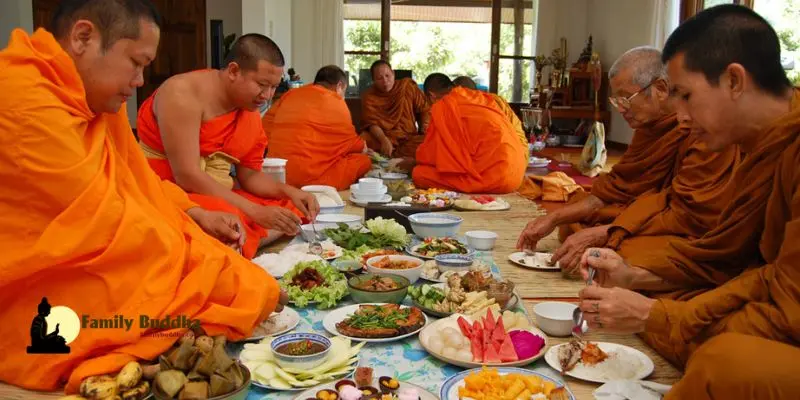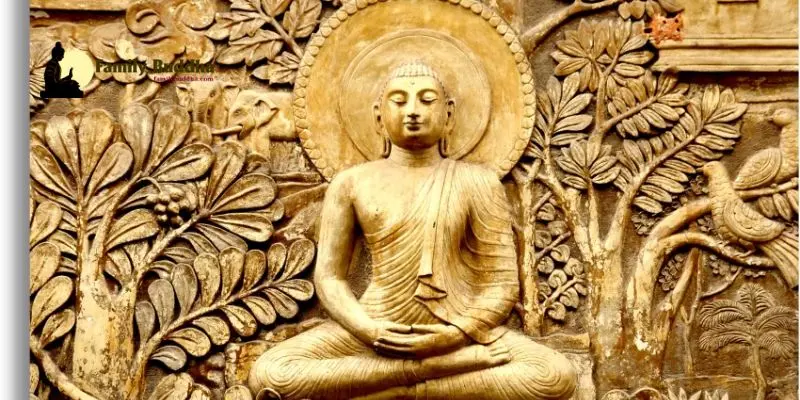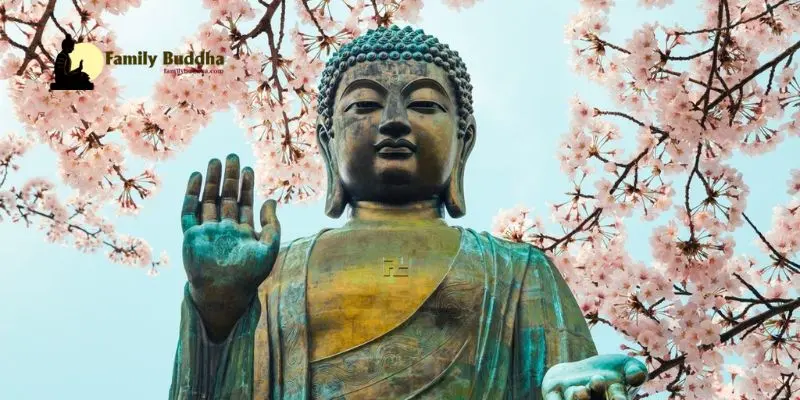Zen Buddhist monks follow a dietary regimen deeply rooted in tradition and mindfulness. While their meals may seem simple, they are rich in symbolism, discipline, and reverence for life. Understanding how Buddhist monks eat not only provides insight into their spiritual practices but also offers valuable lessons that can be applied to our own lives. So, do Zen Buddhists eat meat? Let’s discover at Familybuddha.com.
The Philosophy Behind Buddhist Monk Diets
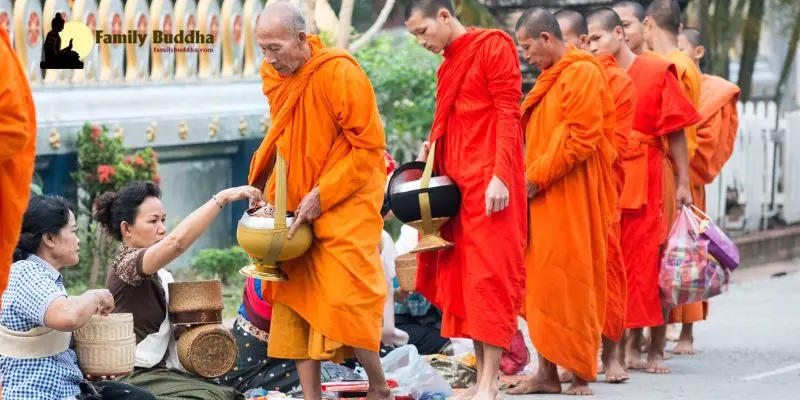
At the core of Zen Buddhist dietary practices lies the principle of shojin ryori, which translates to “devotion cuisine.” Shojin ryori is not merely about sustenance but embodies a holistic approach to eating that aligns with Buddhist teachings of compassion, mindfulness, and non-attachment.
The diet primarily consists of plant-based foods, excluding meat, fish, and dairy products. This deliberate choice reflects the monks’ commitment to ahimsa, the principle of non-violence towards all living beings. By abstaining from consuming animal products, they minimize harm to sentient creatures and cultivate a sense of interconnectedness with the natural world.
Do Zen Buddhists eat meat? The Rule of Five: Balancing Flavors and Colors
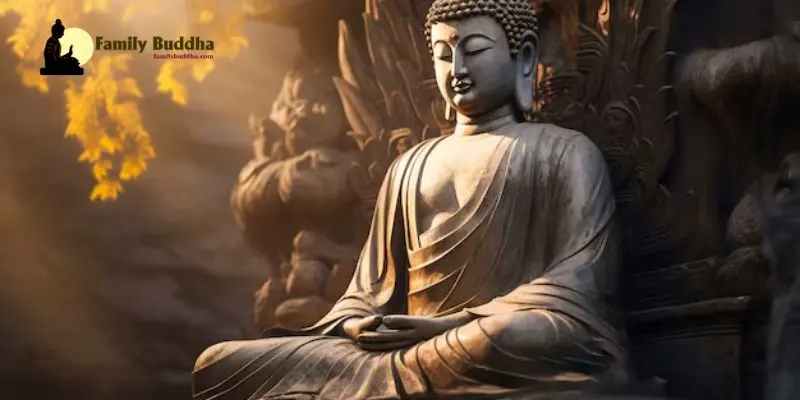
In the preparation of meals, Zen Buddhist monks adhere to the “rule of five,” which emphasizes the importance of incorporating five colors and five flavors into each dish. This principle not only enhances the aesthetic appeal and taste of the food but also promotes nutritional balance and harmony within the body.
The five colors—green, yellow, red, black, and white—represent various elements of nature and stimulate the senses, creating a visually stimulating dining experience. Similarly, the five flavors—sweet, sour, salty, bitter, and umami—awaken the palate and satisfy different taste preferences, ensuring a well-rounded meal.
By embracing diversity in color and flavor, Buddhist monks honor the interconnectedness of all things and celebrate the abundance of nature’s offerings. This mindful approach to eating encourages gratitude, mindfulness, and an appreciation for the present moment.
The Ritual of Eating: Cultivating Awareness and Gratitude
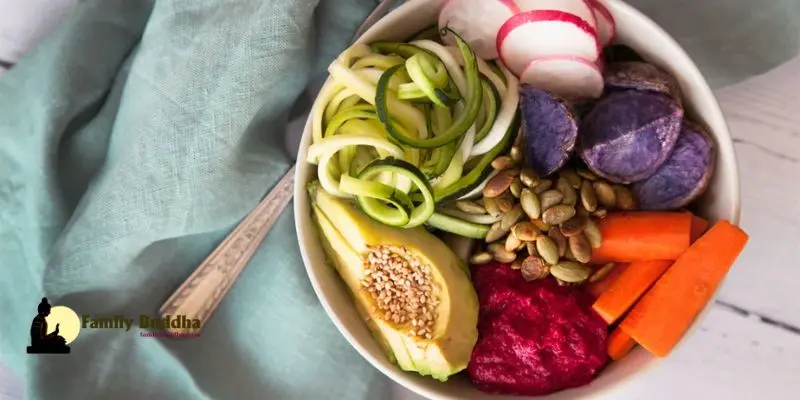
Mealtime for Buddhist monks is not merely a biological necessity but a sacred ritual imbued with meaning and mindfulness. Before partaking in their meals, monks engage in a series of contemplative practices to cultivate awareness, gratitude, and reverence for the food they receive.
Upon entering the dining area, monks recite the Heart Sutra—a fundamental Buddhist scripture—followed by a moment of reflection on five contemplations:
- Gratitude: Expressing appreciation for the labor and generosity of those who contributed to the meal, including farmers, cooks, and donors.
- Mindful Eating: Approaching the act of eating with awareness and presence, savoring each bite mindfully and avoiding distractions.
- Nourishment: Viewing food as more than mere sustenance but as a source of nourishment for the body, mind, and spirit.
- Moderation: Practicing moderation and self-restraint in consumption, avoiding excess and indulgence.
- Interconnectedness: Recognizing the interconnectedness of all beings and offering gratitude to the countless beings whose efforts enable the meal to manifest.
Through these contemplations, monks cultivate a deep sense of gratitude, humility, and interconnectedness with the web of life. Each meal becomes an opportunity for spiritual practice, fostering mindfulness and compassion in every bite.
The Act of Sharing: Extending Compassion to Others
In addition to their practice, Buddhist monks also embody the spirit of generosity and compassion by offering food to others. In monastic settings, monks often share communal meals with fellow practitioners, fostering a sense of community and mutual support.
Furthermore, Buddhist monasteries and temples frequently engage in almsgiving, where monks offer food to the needy and disadvantaged as an act of kindness and generosity. By extending compassion to others through the sharing of food, monks embody the teachings of generosity and selflessness taught by the Buddha.
Embracing the Way of the Monk: Applying Lessons to Everyday Life
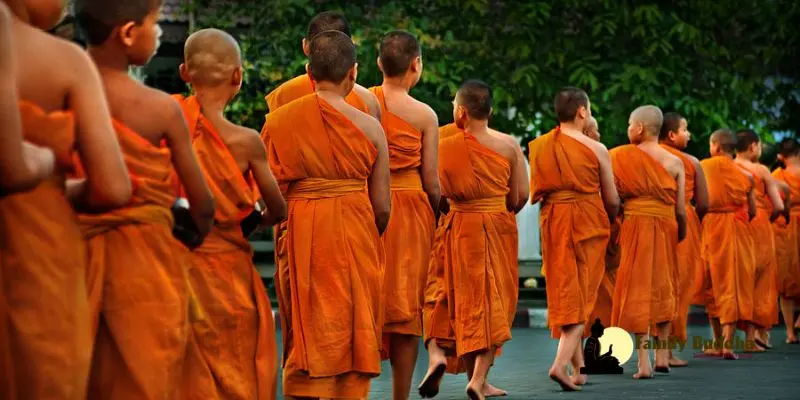
While we may not lead monastic lives, we can still draw inspiration from the dietary practices of Buddhist monks and apply them to our own lives. By adopting a plant-based diet, practicing mindfulness and gratitude during meals, and cultivating compassion through acts of sharing, we can nourish not only our bodies but also our minds and spirits.
In a world often characterized by haste, distraction, and excess, the simple yet profound wisdom of Buddhist monk diets offers a pathway to greater balance, harmony, and well-being. Whether enjoyed alone or shared with others, each meal becomes an opportunity to cultivate mindfulness, gratitude, and compassion—one bite at a time.
The Art of Mindful Eating: Transforming Everyday Meals
Incorporating the principles of Zen Buddhist diets into our daily lives begins with embracing the art of mindful eating. Instead of rushing through meals or mindlessly consuming food, we can cultivate awareness and presence with each bite. By slowing down and savoring the flavors, textures, and aromas of our meals, we can deepen our connection to the present moment and enhance our enjoyment of food.
Practicing mindful eating also involves paying attention to hunger and satiety cues, eating when hungry, and stopping when satisfied. By listening to our bodies’ natural signals, we can foster a healthier relationship with food and avoid overeating or emotional eating.
Moreover, mindfulness extends beyond the act of eating itself to the entire dining experience. Creating a peaceful and conducive environment for meals—free from distractions such as screens or loud noises—can enhance our ability to fully engage with our food and nourish ourselves on multiple levels.
Cultivating Gratitude and Appreciation: Honoring the Source of Our Food
In a world of convenience and abundance, it’s easy to take food for granted and overlook the labor and resources required to produce it. However, by adopting the practice of gratitude and appreciation for our meals, we can deepen our connection to the source of our food and cultivate a greater sense of reverence for all beings involved in its production.
Before each meal, taking a moment to reflect on the journey of our food—from seed to plate—can foster a deeper appreciation for the interconnectedness of all life. Whether it’s expressing gratitude for the farmers who cultivate the crops, the workers who harvest the produce, or the cooks who prepare the meal, acknowledging the contributions of others can enrich our dining experience and imbue it with meaning and significance.
Furthermore, cultivating gratitude for the abundance of food available to us can inspire us to reduce food waste and make more conscious choices about what we eat and how it’s sourced. By adopting sustainable and ethical eating practices, we can minimize our ecological footprint and contribute to the well-being of the planet and future generations.
Extending Compassion Through Sharing: Nourishing Others and Ourselves
In addition to nourishing ourselves, embracing the spirit of generosity and compassion involves extending our blessings to others through acts of sharing. Whether it’s donating food to those in need, volunteering at a local soup kitchen, or simply sharing a meal with friends or family, the act of giving can foster a sense of connection, belonging, and purpose.
By recognizing our shared humanity and the inherent dignity of all beings, we can break down barriers of separation and cultivate a more inclusive and compassionate world. Through the simple act of sharing food, we can express our care and concern for others, fostering a sense of community and mutual support.
Conclusion
In conclusion, by embracing the wisdom of Zen Buddhist diets, we can transform our relationship with food and nourish ourselves on multiple levels—body, mind, and spirit. So, do Zen Buddhists eat meat? Whether it’s through practicing mindful eating, cultivating gratitude and appreciation, or extending compassion through sharing, each meal becomes an opportunity to deepen our connection to ourselves, others, and the world around us. In doing so, we can cultivate greater balance, harmony, and well-being in our lives and contribute to a more peaceful and compassionate world for all.

